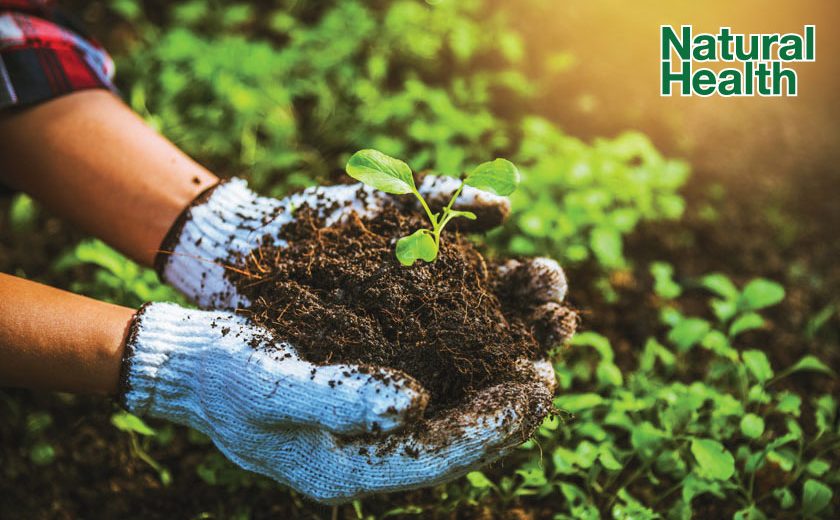The modern farming style that reaps abundance of benefits to yourself and the environment
We are entering (yet again) another MCO lockdown, but as compared to the first MCO which was implemented in March 2020, we are now less anxious than before and have fully adapted to the new normal – which is not an entirely bad arrangement as we revamped our lifestyles (some for the better!) and picked up new skills during this uncertain period. For instance, majority of Malaysians who may have already adopted working from home / heading to the office on rotation basis or only when needed will have the ample time to do more home workouts, while for some who are more health-conscious and do not want to do the takeaways everyday, this is the opportunity to hone their cooking and baking skills as not only it is cost-saving, this gives them the assurance in knowing that the meals they consumed are actually fresh. However, throughout the MCO / CMCO period, we can see the import of fresh vegetables slowing down thanks to the travel restrictions enforced all over Malaysia, begging the question how “fresh” is our fresh vegetables? Especially since it will take a longer time for most grocers to receive these fresh goods.
Because of that and being in pursuit of a more sustainable and healthier lifestyle, some Malaysians have started Aquaponics Farming – a method of farming that has grown popular in Malaysia overtime. What started out as a method that is rarely heard of in Malaysia, Aquaponics has bloomed to be a popular form of urban farming among Malaysians, for it ensures the goods produced are truly fresh straight from the homeowner’s backyard itself!
What is Aquaponics farming and how does it work?
Occasionally confused with hydroponics, Aquaponics is a revolutionary way of farming utilising minimal resources for the best produce of plants and vegetables – more specifically, a form of farming that combines aquaculture using fishes and hydroponics where the produce is grown without soil. The ecosystem of this soilless method of farming focuses on feeding fishes that are kept in a tank and letting their waste do the work. Once these fishes produce their waste, the beneficial waste will be filtered out and converted into its nutritional form which is then streamed via pipelines into the pods of the seed for it to grow beautifully.
I’m in! How do I get started on my Aquaponics farming?
The key essentials needed in order to make your very own Aquaponics farm are (of course) fishes, a space to build your farm and a water filter. According to Dr. Richard Ng, an avid Aquaponics farmer and also founder of Farm2Fork – an Aquaponics hardware provider to several farms – the balance of ecology plays a huge role in the success of an Aquaponics Farm, with several factors contributing to the thriving of the farm including the ratio of fishes to water, the species of fishes to be reared (Dr. Richard recommends Tilapia for beginners) and the temperature of the farm.

“There are so many factors that need to be taken into consideration, for these factors need to be complemented and balanced with one another to see some significant results. Even the water filter that we use also makes a difference, if without the right filtration system, the circulation happening between water, plants and fishes will not be moving at all,” said Dr. Richard.
With five years of determined trying and rectifying his process notes, Dr. Richard finally found the right components to ensure that a balanced ecosystem is in place to yield the intended results. For example, after doing some research and experimentation, Dr. Richard found that when using Waterco Malaysia’s water filtration system, not only did it help speed up the process without affecting the ecology of the system, the system is also less damaging to the climate (and his wallet!) as Waterco Malaysia, a leading one-stop solutions provider for safe and healthy water environment company, is also the only filtration company that’s awarded the Australian-based Climate Certified certification. Since then, both Dr. Richard and Waterco have blossomed a partnership to help the Aquaponics industry.

“What people need to know are to use products / equipment that are environmentally-friendly while at the same time do not add to external costs. The main idea of Aquaponics farming is the environmental and social benefits to society, and we want to stick back to that ethos to remain sustainable as much as we can.”
While the overall investment may seem hefty in the beginning, there are many reasons as to why the returns from this investment is beneficial not only for our health but the overall environment as well.
1. The produces consumed brings more health benefits
Apart from Aquaponics being a soilless method of farming, this method of farming also does not contain any chemical pesticides or fertilizers. Aquaponics farming relies on its fishes and the ecosystem revolving around them. This means pesticides and herbicides are considered toxic as it will be harmful for the fishes which will in turn affect the ecosystem in a negative manner. It is safe to say what is seeped into the roots of the produce is 100% non-harmful as it is from the nutritional waste of quality food fed to the fishes. Despite not having any chemicals, the produce will still grow beautifully within 30 days in looks, size and most importantly, in taste. If you think you know how vegetables taste, think again as these produce taste fresher as compared to your average greens (you can actually taste water in watercress!).
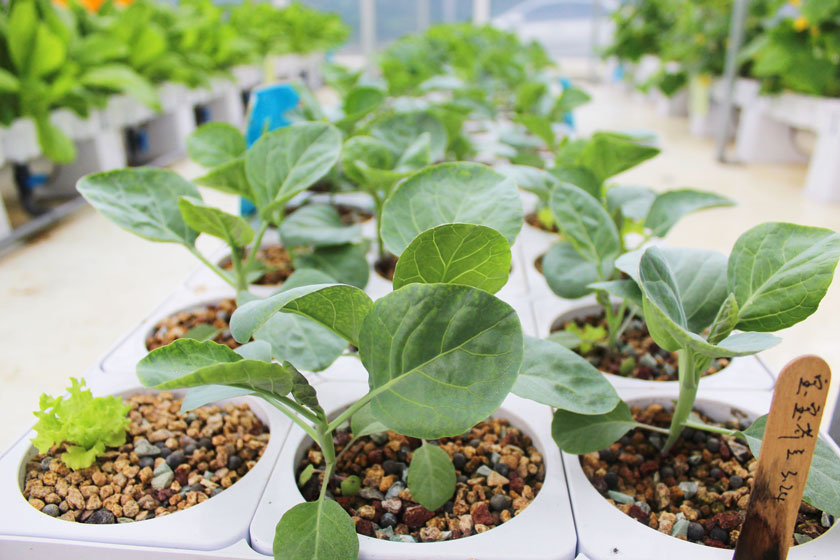
2. Easily maintained
A plus point for all those without a green thumb! Unlike traditional farming, you do not actually need to consistently water your produce and as there is no soil involved, this means there is no weed that you need to pull out frequently. So, for those that are unsure as to when to water your produce or even change its pot and decide how much soil to include, there is no need to worry about that with Aquaponics farming!
“Having my fair share of failure when starting out, one of the many reasons why some fail when it comes to Aquaponics farming is because we do not know much about the basis of farming: the right measurement that is needed and the amount of fishes to be used. All these play a huge part in growing a successful and sustainable Aquaponics farm,” Dr. Richard asserted.
“As long as you understand the science behind Aquaponics which is actually quite simple and straightforward, maintaining it will not be a problem.”
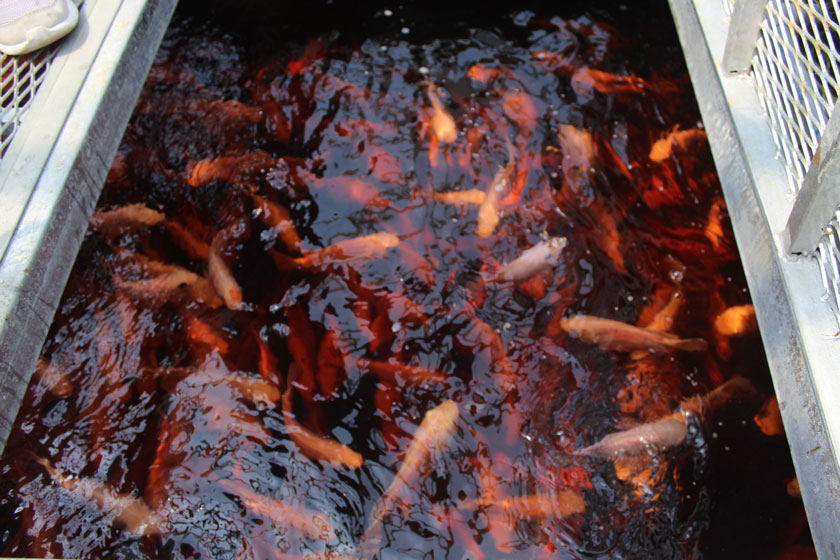
3. Saves land space
One of the many issues faced in traditional farming is the large land needed in order to farm the produce. While Malaysia is fortunate to have empty land spaces where farming can grow, not all locations are suitable especially with the constant climate change. Fortunately, as Aquaponics farming is soilless, this means that one does not need to actually depend on a land with proper soil; you can just build one at the back of your house! For those who are looking to commercialise their produce, a bigger space would be needed in order to produce more which in this case, abandoned buildings can also be utilised. In a way, there is no need to intentionally create a huge land area solely dedicated to farming when use of existing spaces is possible!
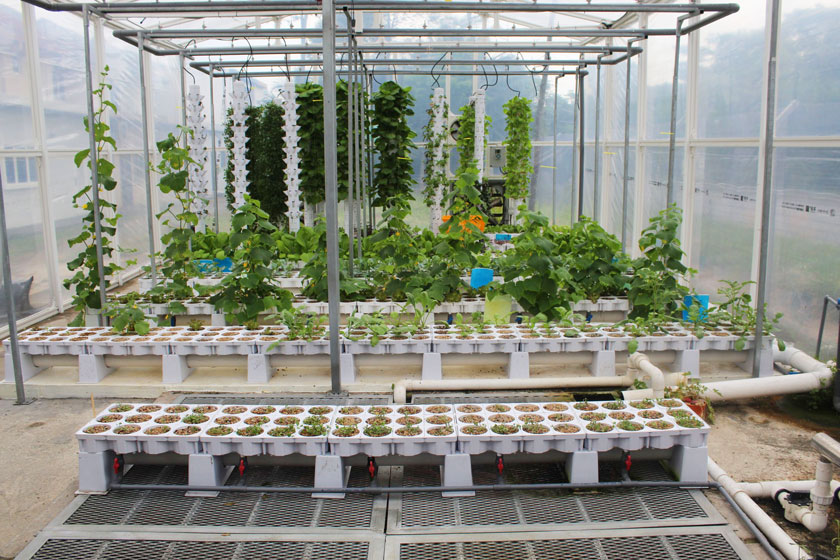
4. Saving our waters!
Apart from being able to utilise existing space, another perk of Aquaponics is that they use less water yet still produce the same results as traditional farming, whereas in traditional farming a large amount of water throughout the day is required in order to harvest the goods. Not only that, if the farm is located near a water source (e.g. lakes), the fertilizer might eventually seep into the water source which causes more harm as some fertilizer has traces of pesticide to ward off unexpected visitors. These pollutants will not only affect the water source for many who rely on it as a source to cook, clean and consume but also the aquatic life (if any).
With Aquaponics, it uses 90% less water as compared to traditional farming as the water nutrients is recycled in a closed-loop. In other words, there will be no extra wastages that do not already fit the existing ecosystem and this cycle will continue to repeat itself for as long as you intend to farm. With the existing climate change happening around the world, recycling our resources is vital.
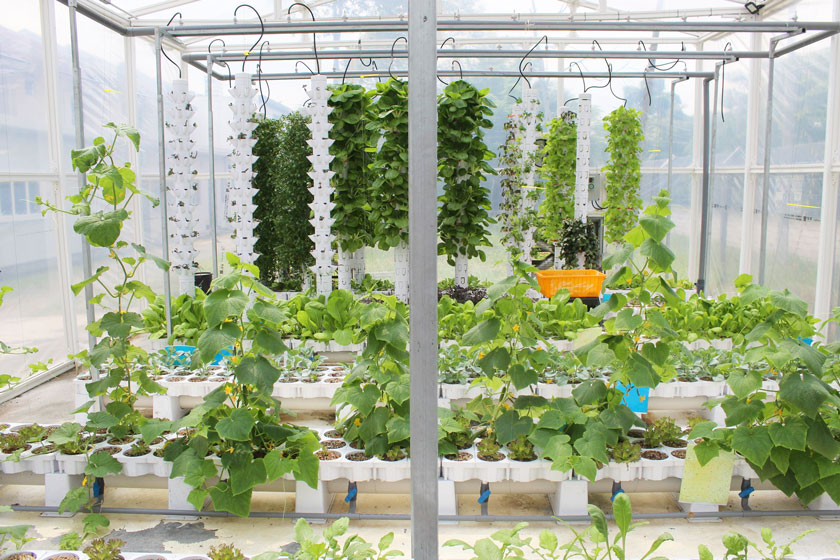
These are just several key benefits of Aquaponic Farming. In short, Aquaponics farming is a modern healthy solution to acquiring fresh goods at home which requires limited resources and is environmentally friendly. Who knows, with MCO 3.0 still ongoing and pandemic not looking to be going away anytime soon, this could be another project to be embraced by all!


